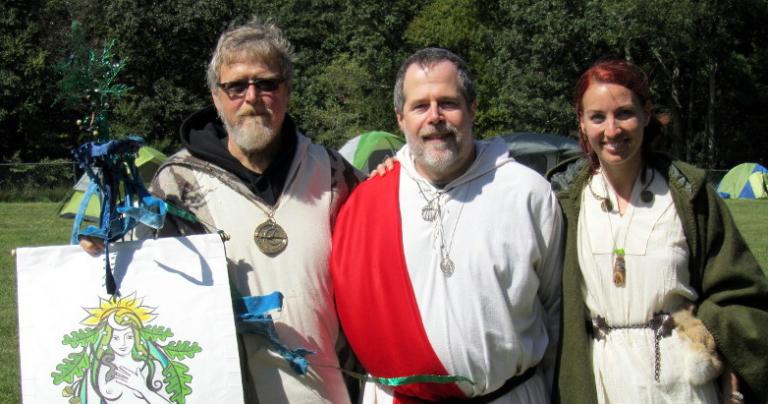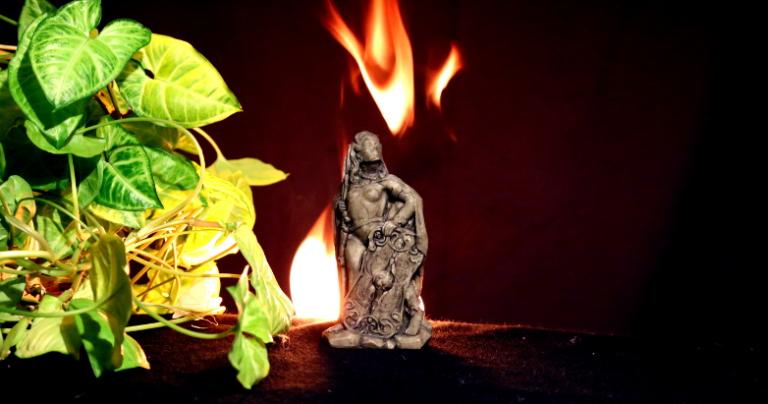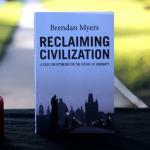I love it when a blog post inspires a response from another blogger. Whether we agree, disagree, or a little of both, continuing conversation is how ideas are tested and refined.
Last week, Kimberly Kirner of The Wild Druid blog at Pagan Bloggers posted Pragmatism and Outcomes-Oriented Religion, a response to the post on another site that also inspired my The Otherworld Needs to be Experienced, Not Escaped. Kim’s post is excellent and I encourage you to read it in its entirety. Here’s a key quote:
How else could we think about religion and its diversity, if we care about forging broad interfaith or inter-Pagan movements to change the world for the better? I would offer that one way to proceed would be pragmatism, and particularly thinking of religion in an outcomes-oriented way.
Pragmatism evaluates truth (of a belief, worldview, practice) based on its practical application. Successes mean that truth is present, regardless of whether that truth makes sense for another person.
I strongly agree with this – I’ve been talking about it on an individual basis for years. Religious truth claims are virtually impossible to prove or disprove with any degree of certainty. Rather than attempting to “prove” your beliefs and practices are true with misinterpretations of science or with references to sacred texts of dubious accuracy, simply ask “does this work?” Does it make your life better? Does it help you live a life that’s connected, compassionate, and sustainable? Does it motivate you to leave the world a better place than you found it? If so, then it’s as true as you’re going to get.

Worldview has no impact on behavior
Our Protestant-dominated culture emphasizes the importance of right belief. Many of us – even Pagans, even atheists – like to think that if everyone just believed the right things they’d do the right things. I’ve argued that if more people saw Nature as a living being and understood the interconnectedness of all things they’d do a better job of preserving ecosystems and living sustainably.
Unfortunately, the evidence says that’s not true. Kimberly Kirner is an anthropology professor – she has the data to back it up.
The idea that thought generates action underlies most educational-type social service programs, ranging from educating women about family planning to educating people about why it’s important to recycle and buy solar panels.
The problem is, I don’t think it works that way (and a lot of research indicates it doesn’t, as well).
So if believing the “right” things has little or no effect on our behaviors, and since only behaviors impact other people, we have no right to insist that other people believe the things we think are right. As Kim suggests, the only grounds we have from which to judge anyone else’s religion are pragmatic grounds.
An interfaith approach
The interfaith movement has operated on this approach for decades. While it has mostly consisted of various Christian denominations with the occasional token Jew, recently it’s become much more inclusive. I’ve represented Paganism in interfaith events with Buddhists, Hindus, Muslims, Baha’is, and Unitarian Universalists, as well as with Christians and Jews.
We have few shared beliefs – we have many shared values. If a Wiccan cares for the Earth because it’s the body of the Goddess, a Christian cares for the Earth because it’s God’s creation, and an atheist cares for the Earth because it’s the only planet we’ve got, all three are doing good work. Their differing motivation is irrelevant.
Paganism is not one religion. It’s a religious movement, a Big Tent that includes many religions and religious outlooks. The outcomes-oriented, pragmatic religious approach that Kim recommends in her conclusions are an excellent way to approach relations between our various Pagan traditions.
Differences still matter
When I first read Kimberly Kirner’s blog post, I told her I didn’t agree with all of it. On further reflection, I do agree with all of it. But now I want to pick up the conversation where she left off.
Some people are only looking for a positive outcome. They want a pragmatic religion that makes their lives better and easier, and they don’t much care what it is. For some that’s an Evangelical megachurch. For some it’s Buddhist meditation. For some it’s no religion at all.
For others, though, the particular path matters a lot.
Maybe you don’t care if the many Gods are individuals or if they’re aspects of one God – I do. Maybe your focus is so much on the future that ancestors aren’t important to you – they are to me. Maybe magic isn’t important to you – it is to me.
These are core aspects of my religion. No pragmatic this-world action can substitute for growing in understanding of the Gods, embodying Their values and virtues, and interacting with Them in hospitality and reciprocity. If this isn’t important to you, trust me – I understand. But it’s extremely important to me. The pragmatism that is enough for some leaves me unfulfilled.
This is why humanity has many religions and not just one. Religious differences matter to individual practitioners and their collective traditions, even if they make no pragmatic difference, and even if non-practitioners don’t understand them.
When you criticize my beliefs, interfaith becomes intrafaith
I’m happy to interact with Humanistic Pagans, Christopagans, and soft polytheists on an interfaith basis. We don’t believe the same things and we don’t do the same things in our practices, but we can still work together where we have common interests. I’m happy to share Pagan Pride Day, Pantheacon, and even OBOD with all of them and others.
But when someone who calls themselves a Pagan begins to criticize my beliefs and practices, the encounter moves from interfaith to intrafaith. When that happens, we’re not arguing about pragmatism and outcomes anymore. Now we’re arguing about foundational assumptions, religious experiences, myths and legends and their interpretations. Now we’re into the geeky, nerdy, “inside baseball” details of Pagan and polytheist religions.
Which I love, as those of you who’ve been following this blog for a while figured out a long time ago.
Some people are offended if you challenge their religion. Some are intimidated. I am neither. In the very first post on Under the Ancient Oaks I said:
I’m starting this blog because I need to work through some spiritual issues … I hope to attract some comments and questions that will help point me in the right direction. The end result will be a deeper, more consistent, more meaningful religious theory and practice.
Challenges force me to examine my religion in greater detail – do I really believe that? Does that practice really do what I said it does? Challenges force me to do a better job of articulating my religion – sometimes I’m misunderstood because I didn’t express myself in clear, precise language.
My goal is not to defend some non-existent Pagan orthodoxy. My goal is to test and refine my religion so I can make it as deep, authentic, and meaningful as it can be.
The ground rules of Pagan debate
If you don’t like religious debate, or if you don’t like the fact that debate often turns into argument, simply decline to participate. It’s not required. Say your prayers, pour your offerings, and get on with living your life as you see fit.
But if you do want to debate – and in particular, if you want to debate with me – you have two options.
You can approach me (or anyone else) in an interfaith manner, from a pragmatic viewpoint only, and in light of Kim’s research that shows worldview has no impact on behavior. If you think my actions bring unhelpful outcomes, challenge them… but without attacking my religious beliefs and spiritual practices.
Or you can approach me as a co-religionist, in which case you should prepare to debate religious issues from a foundation built on animism, polytheism, and first-hand experience – because that’s how I’m going to respond.
To be clear: “you’re not a polytheist” isn’t a defense against weak foundations and inconsistent logic. If an atheist thinks something I write doesn’t make sense, I want to hear their critique – I really do want to test and refine my religion and make it as robust as possible. But if all your argument consists of is a baseless claim that “prayer is an utter waste of time” expect to be shown the door.
The future of Paganism
Jason Mankey had a post last week titled Perhaps the Word “Pagan” Has Become Inadequate? I think it’s always been inadequate.
I expect that over time, our individual traditions will grow in both numbers and in depth. As they do, more people will think of themselves as Gardnerian Wiccans or Hellenists or Celtic Polytheists and fewer will think of themselves as Pagans. But the Big Tent of Paganism will remain as an entry point for seekers, and as a banner for us to gather under for censuses and large projects and gatherings.
I hope we don’t end up like Christianity, where Catholics and Evangelicals and everybody else argues over which group are the “real” Christians.
Instead, I hope we agree there are many ways to be a Pagan, and those many ways have names of their own.
Where our ways differ from others, let us meet them respectfully in an interfaith setting, and evaluate each other on a pragmatic, outcomes-oriented basis.
And where we claim the same names, let us challenge each other (again, respectfully) to define our assumptions, to study our lore, to practice deeply, to experience fully, and to interpret all of it in ways that are meaningful and helpful both individually and collectively.
That will bring us a future of many strong and vibrant Pagan religions.



















